
This quote (by Shirato Mio) properly describes the complex Shiomi Eiji in a few words. The first thing that I really noticed about Eiji was this incredible sadness in his eyes and in the corners of his smiles. His smiles are bittersweet at best; he's quiet, pensive, kind--almost too kind, as though he can never be anything else.
I could only heap praises on Katori Shingo for this understated, delicate portrayal of a man who has numerous scars but tries his best to liberate himself from them. At the beginning, I was struggling to understand this enigma of a person: does he truly mean the things he says? When he says it's fine, is it really? Why does he always view himself as undeserving? Why is there so much sadness integrated into his whole being? I wanted to understand so badly and by the end, I was satisfied with my conclusions.
The plot itself is convoluted and hard to buy but I was able to go beyond that 'revenge' premise to what's truly gold about this show: the characters and the bonds between them.
Eiji's relationship with his daughter, the cute Shizuku, was one of the most moving father-daughter relationships I've ever seen in a drama. And it's a bonus that Shizuku is a level-headed child who is both kind and sweet, though without being saccharine.
Unexpectedly, there were also a few twists in the drama which kept the drama going. While I can't really talk about them, I could just say that they fit well in the story.
I'm so glad that I picked this to watch because the last Japanese drama I've seen was around four years ago (I know, I'm ridiculous). 'Bara No Nai Hanaya' made me remember all the things I loved and appreciated about Japanese dramas. I truly recommend this show and hope you like just as much as I did.
Esta resenha foi útil para você?
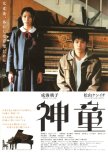
Usually with movies, there are clear events escalating to a climax and falling down into a natural end. It hits you, "Oh. The movie's over."
Either it delivered or it did not. With 'Shindo', I was jolted from the movie by the black screen because I was waiting for something more because the story did not feel complete. This, though, doesn't mean it was an awful movie or something I did not enjoy. I simply found 'Shindo' an oddball.
At the beginning, we're introduced to a middle-schooler who dislikes playing the piano but is attracted to the sound of it playing one day as she's walking down her neighborhood. It turns out the one playing the bad tune (according to her) is Wao Kikuna, who's practicing for his music school audition. A very strange friendship(?) begins from that day when she gives him some tips to improve his playing.
Now you'd think there's plot right there, right? The audition would be the perfect climax, albeit cliche. But it's still off the mark because the audition is never the central story. Uta comes over at random times and spends time in Wao's room while he plays or does nothing. There's a bond between the two, something that's not quite friendship but not yet love, age gap notwithstanding. Uta is the classical prodigy while Wao's the traditional hard-worker who lacks that touch of talent but is willing to make up for it with effort. Uta seemed to inspire Wao and add that something more to his piano playing, and Uta enjoyed his "sucky" playing.
There were also characters that seemed like potential love interests for the two but the story never went there. There's Uta's father's story, which was never explained properly. Uta seemed to have something going on with her ear, but we never get to know if it's merely psychological or physical.
With these missing elements, you end up with a story that never truly goes somewhere and many unspoken and nameless things that leave interpretation up for grabs.
Having said all of this, I do not regret watching this movie. I'm less frustrated than confused. All the same, I liked the calm and quiet atmosphere it had and enjoyed the undefined relationship between Uta and Wao. Though it's frustrating, maybe things are better left unsaid.
Esta resenha foi útil para você?
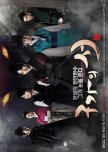
So how could this drama possibly fail when you have an actor like Lee Seung Gi and a gumiho character? When we have in our hands a wishy washy writing such as this.
You'd think that –at least, from the title- getting the Gu Family book would be the most important objective of our hero, but this plotline is tossed and picked up several times whenever the matter of becoming a human is convenient. And still, Kang Chi does nothing to get the book because he's too busy with other things that the writer throws at him. The same happens with the other plotlines; the writer would introduce a certain plot that would then take a backseat to another subplot before finally being continued once we've already forgotten about it.
"Oh, that issue is not resolved yet? I thought it was over two episodes back."
The writing is not sturdy or pulled together; it's confusing and annoying how events simply crop up and how they go down without a proper conclusion, how the rules of this world (which are, in this drama, equivalent to fine print on a contract) are not clear from the beginning and just pop up whenever it's convenient or complementary to the plot to mention, how blatant and forced (and illogical at times) the events that would lead us to major events are. The writing completely lacks the subtility needed for such a plot to be exciting.
One thing I need to concede is that the female leads were amazing; Yeo Wool and Chung Jo are both strong characters that never failed to surprise me—they are so unlike the rest of typical k-drama female leads and I wish to see more of those, but preferably not from the same writer.
The last episode was so messed up I wanted to cry for all the time that I spent watching this show—I felt like the writer was like, "Let it all go to hell! Woohoo!". The only reason I watched all 24 episodes was because of Seung Gi and Suzy, but even if I love those two to bits, I should've quit when it was apparent that the screenwriter hasn't the slightest clue about what she's doing.
(Only when I was writing this review did I find out that the screenwriter is the same person who wrote King of Baking and Man of Honor, both of which I was not able to finish because I couldn't stand the plot and characters.
Now that is pretty interesting.)
Esta resenha foi útil para você?
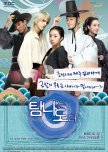
Sure, the first episode was lousy compared to the rest of the episodes, Pierre's acting was terrible the first couple of episodes, and William's character was foolish to the point where it became annoying at times but these are just details when you think about 'Tamra, The Island' as a whole. It was that awesome for me.
I think the major reason why this drama didn't garner as much attention as it deserves is because of its not widely known cast. I don't know about you, but I've never heard of these names before. I hate it when they cut dramas short but this one was originally a 21 episode drama but due to low ratings, it was shortened to 16 episodes. Both versions work fine. I watched a bit of the longer version.
This is not just your typical historical love story mixed in with politics; it's more than that. It's about the bonds between a family, and the loyalty you have towards your own country. I loved the little exchanges between Beo Jin and her parents and sister, between her and the villagers. I couldn't even hate Kkeut Boon, who is sometimes ridiculous and too assuming because I was too fond of her amusing antics. I really liked the people of Beo Jin's village because, although they'd bicker and fight, they were together when it mattered.
Pierre Deporte, or Hwang Chan Bin, seemed to improve as the drama progressed in acting. It's clearly obvious he's a rookie and I think being up against Seo Woo and Im Joo Hwan who were amazing actors here (both of them have a talent so I hope to see them in more dramas) made it even more challenging for him but he was trying. His Korean was great and I think that was why he got the role.
His character, William, never ceased to annoy me though. All William knew how to say was 'Beo Jin'. Beo Jin this, Beo Jin that, Beo Jin, Beo Jin. That's one name I will never forget (although I tend to easily forget Korean names) because it's already engraved in my brain.
Oh, and Park Gyu was too adorable here. I loved those 'Ahem' kind of noises he made when he was either embarassed or annoyed. Cuteness galore.
Anyway, just watch the drama already. It's awesome enough that I'm sure you'll forgive it's shortcomings.
Esta resenha foi útil para você?
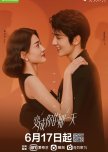
Esta resenha pode conter spoilers
The first episode was so weird I almost bounced off of it but I'm glad I continued. Despite how tropey it was, the relationship development between the leads still felt cute and sincere. I swooned when the confession finally happened and everything was progressing okay. The male lead is very convincing as a girl and the female lead was decent enough.I did feel slightly anxious about them inevitably breaking up and prepared myself for it. I think I was expecting a more deft and natural build up to the break up since the characters had been behaving according to a consistent internal logic so far. Instead, I felt betrayed by the feeling that the break up arc was now activated and the characters started behaving unlike themselves just to create angst.
The characters had been managing their switching incidents as they happened but now the fmc was fearful of touching the mmc and withdrawing from him physically. They both knew there was a chance of them being discovered at any moment (the mmc always had to wear a mask in public) and, leading up to the posting of the paparazzi pictures, they'd been aware that a paparazzo had been following then and may or may not have "incriminating" photos of them together. They knew all these things and maybe the fmc wasn't fully cognizant of what the scandal would mean for her and her family...she still completely withdrew from the mmc at their first real difficulty without any consideration for how this might hurt him. It's definitely difficult for celebs to date -especially when it's with regular people- but not impossible. Things do blow over eventually. I guess I just wish the build up was convincing if the break up had to happen in the first place.
I disliked the last 3-4 episodes strongly. I'm over the whole let's-break-up-and-meet-after-a-year trope. It's old and boring. I don't even properly understand why they broke up anymore. Their conversations after the one-year gap made it seem like her one and only major issue had been her fear of them switching and that made no sense to me. So it wasn't the scrutiny from his fandom and the media? Blergh. Whatever. (Note: I didn't care much about the story-in-a-story thing since I figure they only used it to get around censorship. I'm treating the novel as "the story" in my head.)
Esta resenha foi útil para você?
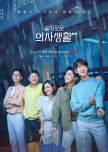
The writing lacked subtlety when it was trying to teach a lesson or communicate a point. A scene featuring a simplistically nasty character would play before another scene showing one of our main character doing the "right" thing to show them in a better light. Most of the characters were overly idealistic and kind or terrible and mean. I wished the arching themes were handled in a much more subtle way instead of us getting hit over the head with them.
The screenwriter's writing really shines when she depicts friendships and the bonds between families, but even then, there were some weak points. She seems to have a tendency to focus on mother figures and use them to create conflict. For most of the patients' families, the father/husband figure was absent completely or only appeared for an important surgery (unless the father was a patient himself). This happened multiple times to the point where I couldn't take the father/husband figure standing next to the woman seriously because they'd been pretty much completely absent until the surgery scene. They rarely have lines and they might as well have blurred faces because they're simply there as props.
I liked most of the relationships except for the one involving Jong-wan and Ik-sun. This couple reminded me too much of the main couple in Reply 1994, which I disliked, and the conflict felt absolutely idiotic and pointless. Again, the screenwriter mostly writes really good couples that have the best interactions and chemistry so I don't get why she keeps reusing these old-fashioned types of conflicts for some of her couples.
Esta resenha foi útil para você?






















